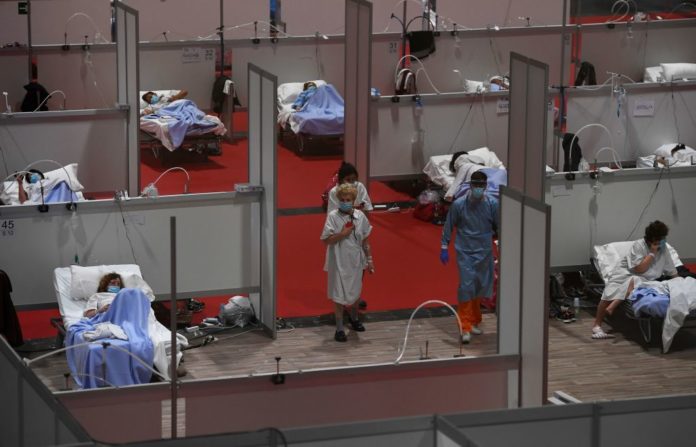
|
Getting your Trinity Audio player ready...
|
13 more Ghanaians have succumbed to COVID-19 related infections pushing the death toll to an alarming 518, reports the Ghana Health Service (GHS).
As at 9 February 2021, 771 new coronavirus cases were recorded increasing the country’s active cases to 7,754 , the GHS COVID-19 dashboard signals.
Airport cases
The total confirmed cases now stand at 75,118 out of which 66, 846 have recovered after 827, 784 tests were conducted. Cases detected at the Kotoka International Airport (KIA) are 1,168 with 943 recoveries.
So far, 106 persons are in severe situation while 29 remain critical, according to GHS.
Regional Confirmed cases
Greater Accra Region – 43,928
Ashanti Region – 13,464
Western Region – 4,325
Eastern Region – 3,239
Central Region – 2,514
Volta Region – 1,247
Bono East Region – 922
Northern Region – 802
Bono Region – 763
Upper East Region – 755
Western North Region – 747
Ahafo Region – 624
Oti Region – 256
Upper West Region – 254
Savannah Region – 68
North East Region – 42
Vaccine to cost Ghana US$200 million
Meanwhile, government of Ghana is spending over US$200 million to procure COVID-19 vaccine for the entire population.
Dr Franklin Asiedu-Bekoe, director of public health at GHS, said the price of the vaccine available presently ranged from US$4 to US$20 and that would be the cost at which every Ghanaian would be vaccinated.
He told the GNA that the first consignment of the vaccine would arrive in the country by the end of February.
“The goal is to vaccinate every Ghanaian and presently we are in excess of USD 200 million,” he said.
Dr Asiedu-Bekoe said the GHS was opting for readily available vaccines to ensure that the vaccination process was not prolonged.
A vaccine is a substance used to stimulate the production of antibodies and provide immunity against one or several diseases.
It is prepared from the causative agent of a disease; its products are treated to act as an antigen without inducing the disease.
Experts say it typically takes a few weeks for the body to build immunity (protection against the virus that causes COVID-19) after vaccination, meaning it is possible a person could be infected with the virus that causes COVID-19 just before or just after vaccination and still get sick.
Based on existing knowledge on vaccines for other diseases and early data from clinical trials, experts believe that getting a COVID-19 vaccine may also help keep one from getting seriously ill even if you do get COVID-19.
If one gets vaccinated, it may also protect people around him or her, particularly, people at increased risk for severe illness from COVID-19.




